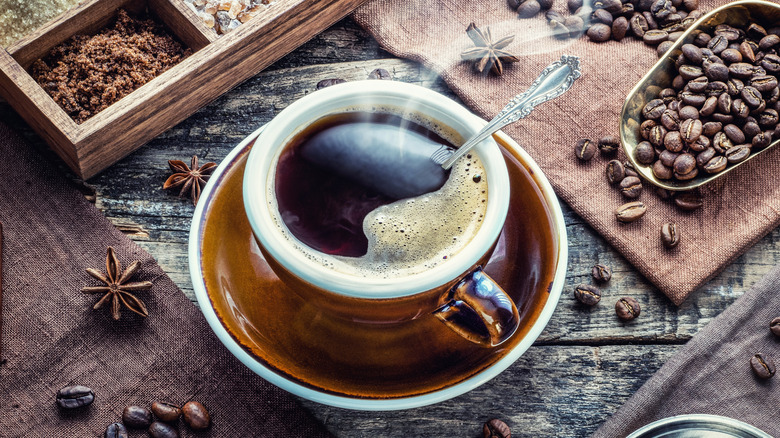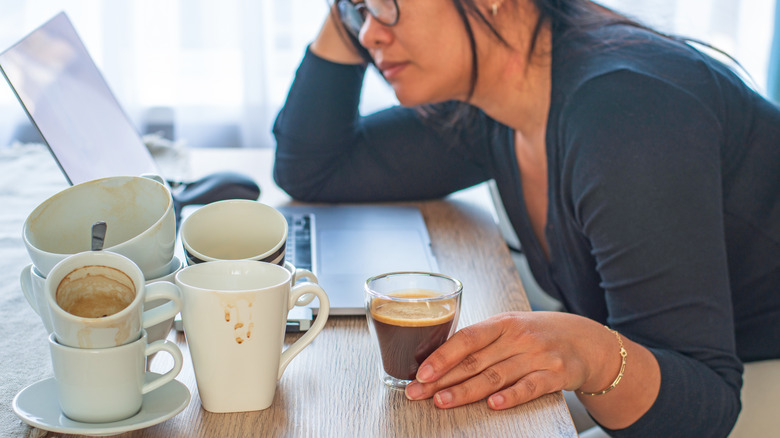Doing This Could Help You Avoid Caffeine Withdrawal
Across the United States, caffeine is a staple that helps keep the wheels of society turning. Whether it's a Starbucks Frappuccino, a deli coffee with cream and sugar, or a refrigerated energy drink, people do enjoy their caffeine. In fact, Deals On Health reports that in the United States, over 400 million cups of coffee are consumed daily — that's an impressive amount of java! But while the espresso shots and radically-themed energy drinks may give you the added energy to power through the day, there are also some unpleasant side effects you may experience when missing a dose.
The more caffeine you drink, the more your body will become dependent on it. For example, if you skipped your usual afternoon Red Bull, there's a good chance you'll feel some effects of caffeine withdrawal. According to Addiction Center, caffeine withdrawal can make you feel anxious, shaky, fatigued, and can even induce migraines. Although a coffee addiction is not considered high risk, it's important to avoid growing dependence on your coffee or soda. There are some ways, however, to ease yourself off of caffeine without any withdrawal symptoms.
Slower is best when reducing caffeine intake
If you're trying to cut back on your daily coffee grind, the Cleveland Clinic recommends beginning a steady process of alternating between caffeinated coffee and decaf coffee. This way, you'll be reducing caffeine consumption without suffering from any sudden symptoms. This can take about two or three weeks, per the Cleveland Clinic, so feel free to supplement your diet with more water and other non-caffeinated drinks.
If you're looking to kick the caffeine completely, the Cleveland Clinic reports that cold turkey is not recommended. Stopping suddenly is a sure-fire way to induce caffeine withdrawal symptoms, which can cause you to seek out more caffeine to quell them. Instead, it's suggested that you wean off caffeine slowly, substituting a portion of your usual caffeinated drinks with cold water. Water helps to flush caffeine out of the body and keeps you feeling hydrated and refreshed.
Of course, the cold turkey method is a swift way to kick the, but Caffeine Informer shares that it can be a harsh experience. Over-the-counter painkillers may be needed for headaches, easy-to-digest foods will be helpful for gastrointestinal upset, and if you are willing to go cold turkey, it's advised to give yourself a few days to recover.

